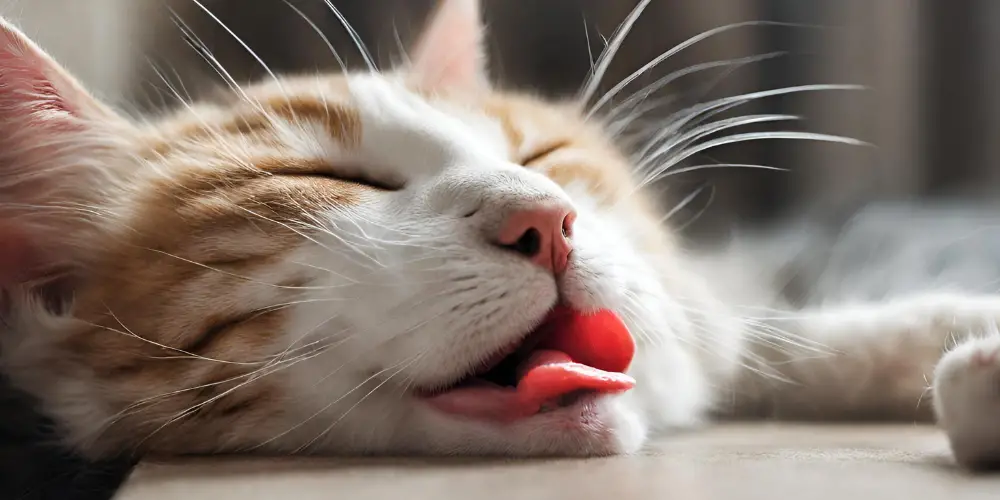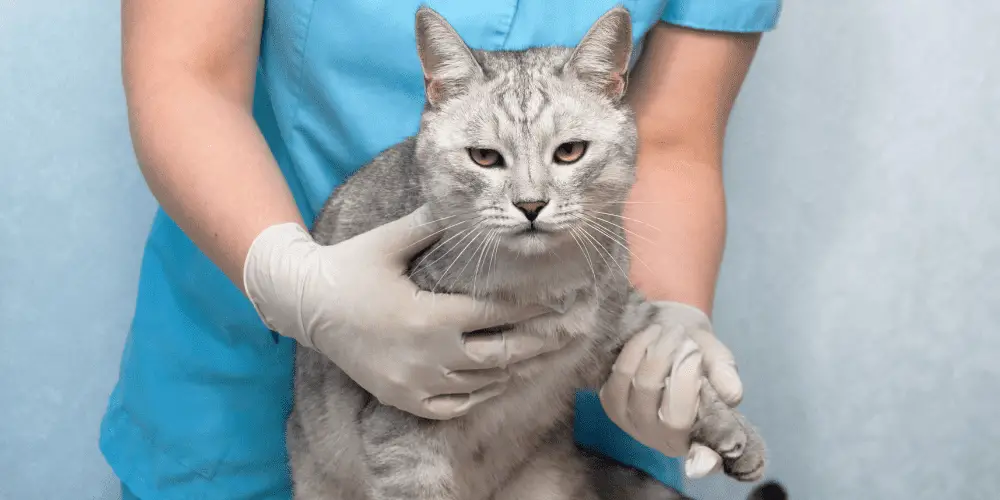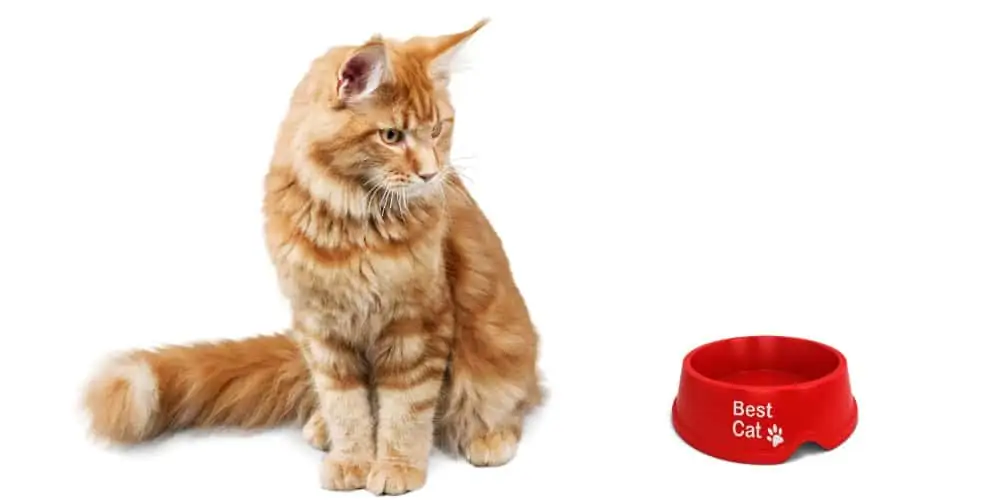The intriguing world of feline behavior is full of surprises, including the sight of cats sleeping with their tongue slightly protruding.
This adorable phenomenon is not just a subject of many a viral cat photo; it’s also a behavior that piques the curiosity of cat enthusiasts and pet owners alike.
Let’s explore the mystery behind this endearing cat behavior.
Key Takeaways
- Cats often “blep” with their tongues out during sleep as a sign of relaxation, but persistent blepping may indicate health issues.
- Muscle relaxation in sleep, especially during REM phases, can cause a cat’s jaw to open slightly, revealing the tongue.
- Dental problems like gingivitis or tooth decay can cause cats to sleep with their tongue out, underscoring the importance of regular oral care.
- Tongue protrusion in cats can be a cooling mechanism during sleep, particularly in warmer conditions.
- Brachycephalic cat breeds, such as Persians, are more prone to sleeping with their tongue out due to their facial structure.
- Cats may extend their tongues due to motion sickness during travel or other movements.
- Stressful environments or changes can lead to cats displaying tongue protrusion as a stress response.
- Anxiety, whether chronic or situational, can trigger tongue protrusion in cats.
- Aging and sensory decline in senior cats can lead to changes in sleep behavior, including tongue protrusion.
- Understanding normal versus abnormal behaviors in cats is key to identifying potential health issues.
- Providing a stress-free environment for cats contributes significantly to their overall well-being.
- A balanced diet is crucial for a cat’s general and oral health, influencing behaviors like tongue protrusion during sleep.
- Aging brings physical and cognitive changes in cats, affecting their sleep behavior and posture.
- Adapting to the needs of aging cats involves comfortable resting areas, consistent environments, and regular health check-ups.
- Monitoring behavioral changes in aging cats is essential for early detection and management of health issues.
- While a cat sleeping with its tongue out is usually harmless, it’s important to watch for signs of discomfort or health problems.
Nine Key Reasons Why Cats Sleep with Their Tongue Out
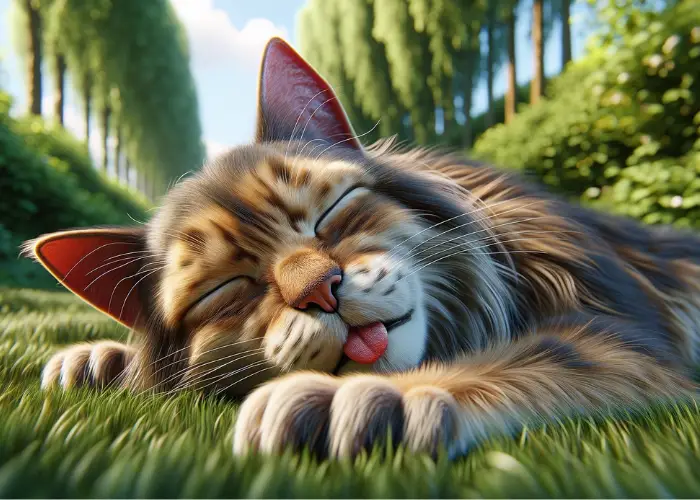
1. The Concept of “Blepping”
‘Blepping’ occurs when cats leave their tongue out, typically during relaxed states or deep sleep. It’s often a sign of contentment, but consistent blepping can signal health concerns.
2. Relaxation During Sleep
Cats experience muscle relaxation in sleep, particularly during REM phases. This relaxation can cause the jaw to open slightly, making the tongue visible, indicative of deep, peaceful sleep.
3. Dental and Oral Health Issues
Oral health problems, like gingivitis or tooth decay, can lead to discomfort and result in tongue protrusion during sleep. Regular dental care is crucial for preventing these issues.
4. Overheating and Temperature Regulation
Cats regulate body temperature through means such as panting and tongue protrusion. This behavior is a cooling mechanism in warmer conditions or seasons, sometimes evident even while asleep.
5. Physical and Breed-Specific Characteristics
Certain cat breeds, particularly brachycephalic ones like Persians and the Himalayas, are more prone to this behavior due to their unique facial anatomy.
6. Motion Sickness
During travel or other movements, cats may experience motion sickness, which can cause them to stick their tongue out.
7. Stress
Stressful environments or situations, such as changes in the household or loud noises, can lead to cats exhibiting this behavior as a stress response.
8. Anxiety
Anxiety, whether chronic or situational, can also trigger this behavior in cats. This could be due to a variety of factors, including separation anxiety or fear.
9. Sensory Decline and Aging
In senior cats, a decline in muscle tone and sensory capabilities can lead to altered sleep behaviors, including increased tongue protrusion.
Insights into Cat Behavior and Health
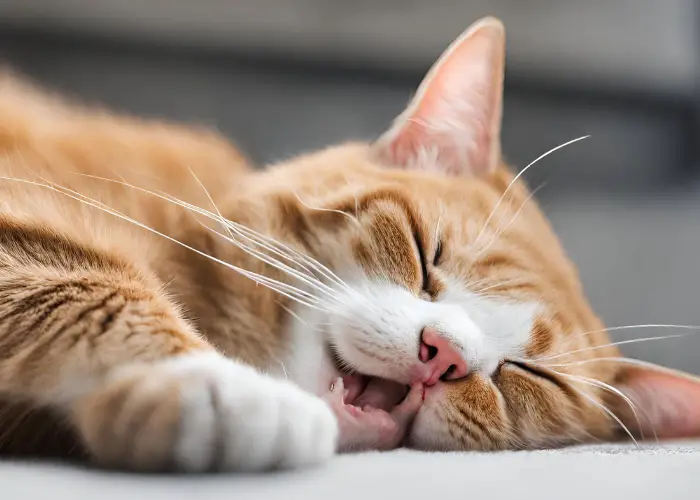
Normal Versus Abnormal Behaviors
Understanding your cat’s typical behavior patterns is crucial. While sleeping with the tongue out is often harmless, changes in this behavior can be early indicators of health issues.
Importance of Environmental Comfort
Creating a stress-free environment for your cat is key to their wellbeing. This includes maintaining a comfortable temperature, providing safe and cozy sleeping areas, and adhering to a consistent routine.
Nutritional Considerations
A balanced diet plays a significant role in a cat’s health. Nutritional choices impact their general and oral health, influencing behaviors like tongue protrusion during sleep.
The Role of Aging in Feline Behavior
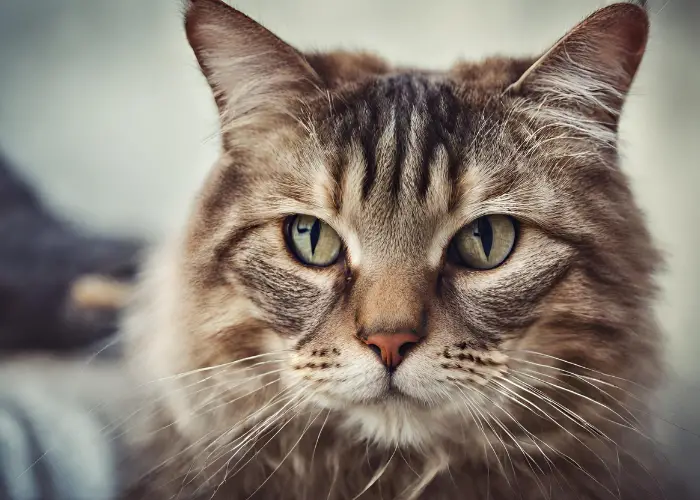
As cats grow older, they experience changes that can affect their behavior, including the way they sleep.
Physical Changes in Senior Cats
Older cats may have decreased muscle tone and dental health issues, leading to more frequent tongue protrusion during sleep.
Muscle weakening can result in a less controlled jaw, and dental deterioration might affect their ability to keep the mouth fully closed.
Cognitive Changes and Sensory Decline
Senior cats can experience cognitive changes similar to dementia in humans, which may alter their sleep behaviors, including increased tongue exposure.
Additionally, a decline in sensory capabilities (like sight and hearing) can impact their sleeping posture and behavior.
Managing Age-Related Changes
Adapting to an older cat’s needs involves ensuring comfortable resting areas, providing consistent and calm surroundings, and regular health check-ups.
Nutritional adjustments might also be necessary to cater to their changing health needs.
Observational Vigilance
It’s important to monitor behavioral changes in aging cats closely. While some changes are normal, others could indicate health problems.
Early detection and intervention are key to maintaining their well-being in their senior years.
Conclusion
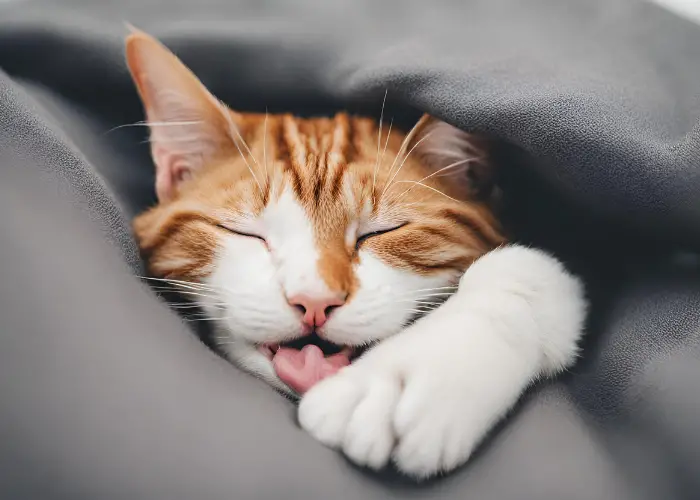
In most cases, a cat sleeping with its tongue out is an innocuous and even charming trait, indicative of a cat in a serene state.
However, as responsible pet guardians, we must observe any accompanying signs of discomfort or health concerns.
Regular veterinary check-ups, awareness of your cat’s normal behavior, and a comforting home environment are key to ensuring your cat’s health and happiness.
